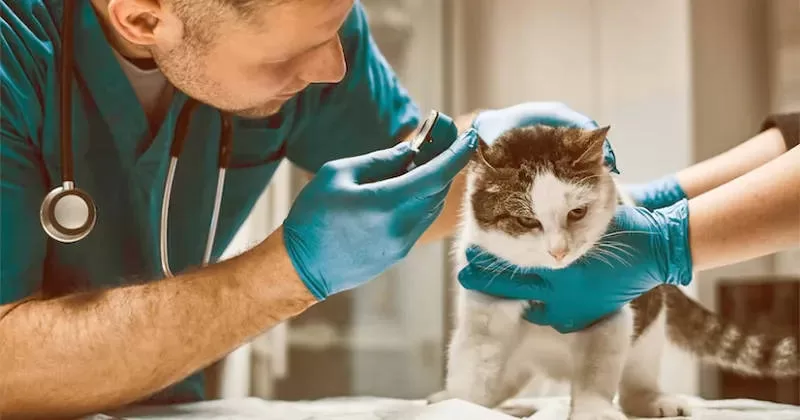Introduction to “Cat Sterilization”
Have you thought about sterilizing your cat? Sterilize, or neuter, is a process that consists of removing the animal’s reproductive organs. In Brazil, this practice is gaining more and more reach, especially in urban centers. But why is this important?
Neutering helps to avoid a series of health problems in animals and contributes to population control. Tiendanimal has a variety of products to help with post-operative care. Before and after surgery, it is essential to observe your pet’s habits. Once this is done, you may notice changes in his behavior.
In an effort to prevent illness and ensure your feline friend’s well-being, consider neutering. After all, nothing better than preventing so you don’t have to remedy!
When and Why to Spay a Cat
Ideal age for sterilization
The right time to sterilize a cat can vary, but is typically between six months and one year of age. In males, the procedure is commonly performed before they reach sexual maturity, usually at six months. Females, on the other hand, are often spayed before their first heat, which can occur between five and eight months.
- Males: 6 months
- Females: Before the first heat (5-8 months)
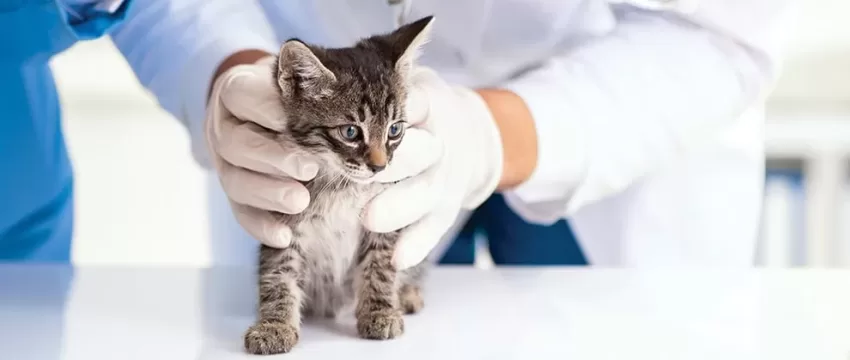
Medical and behavioral reasons for sterilization
There are several reasons why you should consider having your cat neutered:
- Disease Prevention: Sterilization can help prevent a number of reproductive diseases, including certain types of cancers.
- Behavior: Unneutered cats tend to be more aggressive and may exhibit undesirable behaviors such as urine marking.
- Population control: Each year, thousands of kittens end up in shelters for lack of suitable homes.
Impact of sterilization on the prevention of reproductive diseases
Preventive surgery has a significant impact on your pet’s health:
- In females, it reduces the risk of developing malignant breast tumors or pyometra (uterine infection).
- In males, it prevents problems such as benign prostatic hyperplasia (prostate enlargement) and testicular tumors.
In summary, in addition to the obvious behavioral benefits – less aggressiveness in males and absence of the estrous cycle in females – there are clear health benefits associated with the practice of neutering domestic animals.
Benefits of sterilization for the cat
Improvement in behavior
Spaying your feline can bring about a significant change in the animal’s general behavior. It’s no surprise that unneutered cats are often more aggressive and territorial. They also have a tendency to mark territory, a habit that can be quite inconvenient. By opting for sterilization, these behaviors can be drastically reduced, making living with your pet much more pleasant.
Increase in life expectancy
Another notable benefit of neutering is the increased life expectancy of cats. This is because the surgery eliminates the chances of certain health problems related to the reproductive system. Also, sterilized cats tend to live calmer, less risky lives, as they are less likely to get involved in territorial fights or go out looking for mates.
- Male cats: Sterilizing male cats helps prevent diseases such as testicular cancer and some urinary problems.
- Female cats: In females, in addition to avoiding unwanted litters, it prevents uterine infections and mammary tumors.
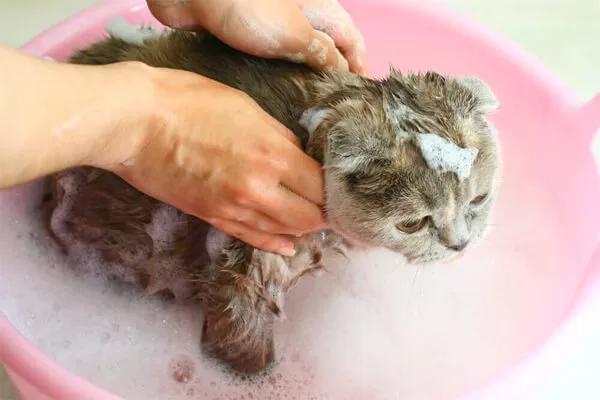
Prevention of health problems
Neutering is also an effective way to prevent many health problems that can affect your cat throughout its life. As mentioned earlier, this includes certain types of cancers and infections.
- Cancers: Removal of the reproductive organs drastically decreases the risk of developing this type of serious disease.
- Infections: Urinary tract infections are also less frequent in neutered cats.
In short, although the decision to sterilize may seem difficult at first, the benefits provided by this procedure for the quality and life expectancy of your feline are undeniable. Having a calmer, healthier animal with greater longevity are just some of the advantages obtained through this simple and safe process.
Differences in sterilization: males vs females
Different surgical procedures
Sterilization in cats differs significantly between the sexes. In males, the procedure is known as neutering and involves removing the testicles. This process stops the production of sperm and drastically reduces the production of male hormones.
On the other hand, in females, the procedure is called ovariohysterectomy, which consists of extracting the uterus and ovaries. This intervention avoids future embarrassments and eliminates the risk of tumors in these areas.
preoperative care
Preoperative care is also different depending on the sex of the animal:
- Males: It is important to ensure that the testicles have completely descended prior to the operation. In addition, strict weight control must be carried out to avoid complications during surgery.
- Females: Cats must not be in heat or pregnant at the time of the operation. It is also recommended to control your weight and condition of the breasts.
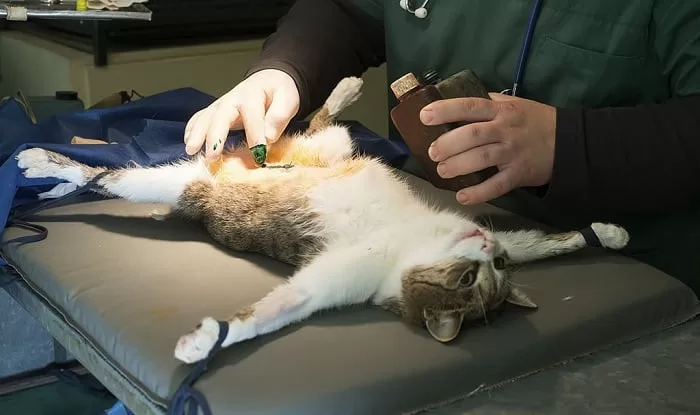
Post-surgical recovery time
Recovery time after surgery varies between genders:
- Males: Recovery is usually quick, usually taking just a few days for them to get back to their normal routine.
- Females: The convalescence period can last a few weeks, as it is a more complex surgery.
Always remember that each animal is unique and may react differently to the same procedure. Therefore, it is essential to have a good veterinary team to monitor your pet throughout the process.
In summary, although neutering is a common procedure in both male and female cats, there are several differences in surgical processes, preoperative care required, and post-surgical recovery time. Understanding these differences can help you make informed decisions about your pet’s health.
Postoperative care for sterilized cats
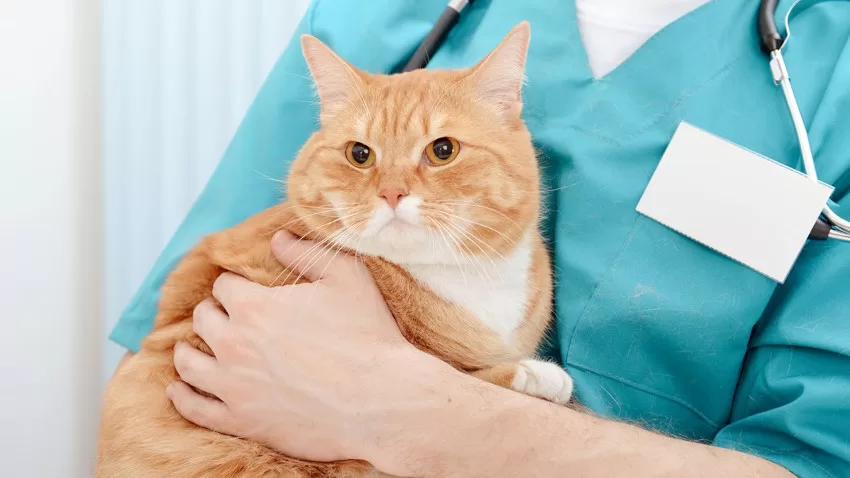
Need for rest, adequate food and medication
After a neutering operation, your cat needs a lot of rest. This is no time for intense play or high heels. Keep him comfortable and quiet in a safe place where he can recover without interruption.
Food is also crucial in this period. Your veterinarian will likely recommend a special diet to aid recovery. Make sure you follow the instructions exactly.
Last but not least, medication. Some cats may need pain medication or antibiotics after surgery. Again, follow your vet’s advice and never give your cat medication that wasn’t specifically prescribed for her.
Importance of veterinary reviews
Follow-up appointments are key to ensuring that everything is going well after the operation. The veterinarian will check the healing of the surgical wound and assess your cat’s general condition.
Don’t hesitate to make an extra appointment if you notice anything unusual about your pet’s behavior or the appearance of the surgical incision.
Possible complications after the operation
Although sterilization is a common and generally safe surgery, there are some possible complications:
- Infection: Signs include redness, swelling, or pus in the incision area.
- Bleeding: If you notice excessive bleeding from the incision area, contact your veterinarian immediately.
- Adverse reactions to anesthesia: although rare, may include prolonged lethargy, lack of appetite or vomiting.
- Urinary problems: especially in males, difficulties with urination may occur after surgery.
In summary, post-operative care is essential to ensure your cat’s smooth and speedy recovery after sterilization. Always remember to follow your veterinarian’s guidelines and keep a close eye on your pet’s behavior during this critical period.
Suitable food for sterilized cats
Diet changes
Spaying or neutering a cat brings about a significant change in its metabolism. This means that the cat’s diet needs to be adjusted to avoid health problems. Here are some recommendations:
- Reduce the amount of calories: Neutered cats have a greater tendency to gain weight, as their metabolism slows down. So, you need to reduce your caloric intake.
- Increase protein intake: Protein is essential for keeping your cat’s muscles healthy and strong.
- Opt for specific foods: There are rations developed especially for neutered/sterilized cats that contain all the necessary nutrients.
Obesity risks
Obesity in neutered/sterilized animals is not only an aesthetic issue, but also a risk to the animal’s health. It can lead to the development of various diseases such as diabetes, heart and joint problems.
Therefore, it is important to monitor your pet’s weight and ensure that he has regular physical activity in addition to a balanced diet.
nutritional recommendations
Maintaining the animal’s healthy weight after spaying/neutering involves following some nutritional guidelines:
- Provide small, frequent meals: This helps keep metabolism active and prevents excessive weight gain.
- Include fibers in the diet: Fibers help with the feeling of satiety, preventing the cat from eating too much.
- Avoid very fatty foods: They can contribute to weight gain.
Always remember that each cat is unique and may have specific needs. So always consult a vet before making any changes to your pet’s diet.
I hope these tips help you take better care of your feline friend’s diet after spaying/neutering!
Frequently asked questions about sterilizing cats
The process, risks and benefits
Many people wonder about the process of feline sterilization. Is it a safe surgery? What are the benefits? And the risks?
Spaying is a surgical procedure that prevents reproduction in cats. In females, it is called ovariohysterectomy (removal of the ovaries and uterus) and in males, orchiectomy (removal of the testicles). Surgery is generally safe, especially if the animal is otherwise healthy.
The benefits of sterilization include:
- Preventing unwanted litters
- Decreased aggressive or territorial behavior
- Decreased risk of certain diseases such as mammary tumors and uterine infections in females, and prostatic problems in males.
Risks are mainly related to anesthesia and possible post-surgical complications, but are minimized with proper care.
Mitigating Common Myths
There are many myths circulating about feline neutering/neutering:
- Myth: Neutered cats get fat and lazy.
- Reality: Weight gain can occur if the cat consumes more calories than it burns. A balanced diet and regular exercise can prevent this.
- Myth: Neutering changes a cat’s personality.
- Reality: Your cat’s basic personality will not change after surgery.
Changes in the animal after the operation
After the operation, you may notice some changes in your cat:
- Males tend to be less aggressive and territorial.
- Females will no longer go into heat.
- Some animals may have a decrease in physical activity.
However, each animal is unique. Not everyone will present these changes in exactly this way.
In short, the decision to have your cat spayed should be made after considering all available information and discussing options with your veterinarian. After all, who better to answer your questions than an experienced professional?
Conclusion on “cat sterilization”
Spaying your cat isn’t just about population control. It’s a responsible act that can improve your pet’s health and well-being. It doesn’t matter if your cat is male or female, the benefits are significant.
Postoperative care is essential to ensure a quick and safe recovery. Also, adjusting your cat’s diet after neutering can help her maintain a healthy weight.
Now that you understand more about cat neutering, it’s time to make an informed decision for your feline friend’s well-being.
Frequently asked questions about sterilizing cats
Does neutering affect my cat’s behavior?
Yes, there can be positive behavioral changes. Male cats tend to be less aggressive and less likely to mark territory.
How long does it take for a cat to recover from surgery?
Most cats recover within two weeks of surgery, but this depends on the animal’s age and general health.
Does my cat’s diet need to change after neutering?
Yes, sterilized cats have slightly lower caloric needs. Consult your veterinarian for advice on dietary changes.
Are there any downsides to having my cat spayed?
The risks associated with surgery are minimal when compared to the health and behavioral benefits it brings.
Will my cat gain weight after neutering?
Not necessarily. With a proper diet and regular exercise, cats can maintain a healthy weight after surgery.
External Links:
typical manifestations of this phase
cura y el control de la zona de los puntos.

